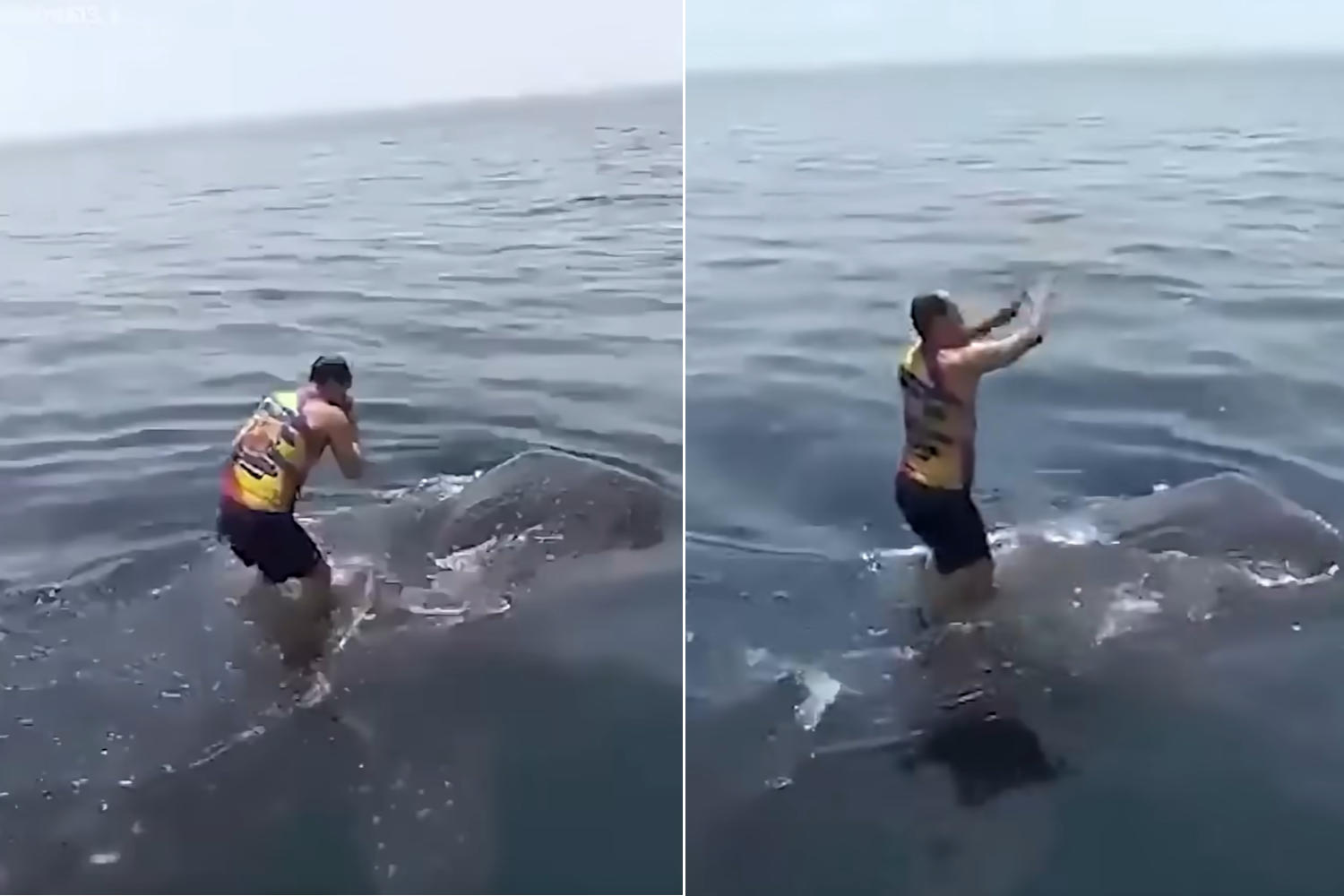A viral video from Iran shows a man dancing on a whale shark, sparking outrage and raising concerns about the risks such stunts pose to marine life.

@PopStreamNow/YouTube
A video circulating on social media has stunned viewers: a man leapt from a boat and landed on the back of a whale shark, treating the massive animal like a stage. The bizarre scene unfolded off the coast of Abadan, Iran, near an offshore oil platform.
The man, whose identity remains unknown, didn’t stop at simply riding the animal. He began to dance, clap, and jump while balancing on its back. The whale shark, despite the provocation, stayed calm and kept swimming, showing no aggression. But that calmness doesn’t make the stunt any less reckless. The behavior carries real risks, both for the animal and for the human involved.
The risks for the animal
Whale sharks are known as gentle giants, posing no threat to humans. Yet their skin is covered by a fragile protective layer of mucus that shields them from parasites and infections. Disturbing that layer by touching, climbing, or stomping on the animal can strip away its defenses, leaving it vulnerable to disease and weakening its health. What might look like a “harmless stunt” for a video can, in fact, cause irreversible damage to one of the ocean’s most awe-inspiring creatures.
A recurring phenomenon
This is far from the first time such scenes have gone viral. Previous clips have shown people riding sharks or other marine animals for nothing more than likes and views. It’s an irresponsible spectacle that risks becoming a dangerous trend, fueled by the lure of social media attention and a lack of respect for marine life.
These are disturbing images, where animals are reduced to props for entertainment. Social platforms, instead of curbing the trend, often amplify such behavior, pushing it to wider audiences hungry for shock value. At the heart of this problem lies a simple truth: our fascination with wild creatures should inspire protection, not exploitation. Educating the public to respect the ocean and its inhabitants is the only way to ensure that wonder translates into care, rather than cruelty.
